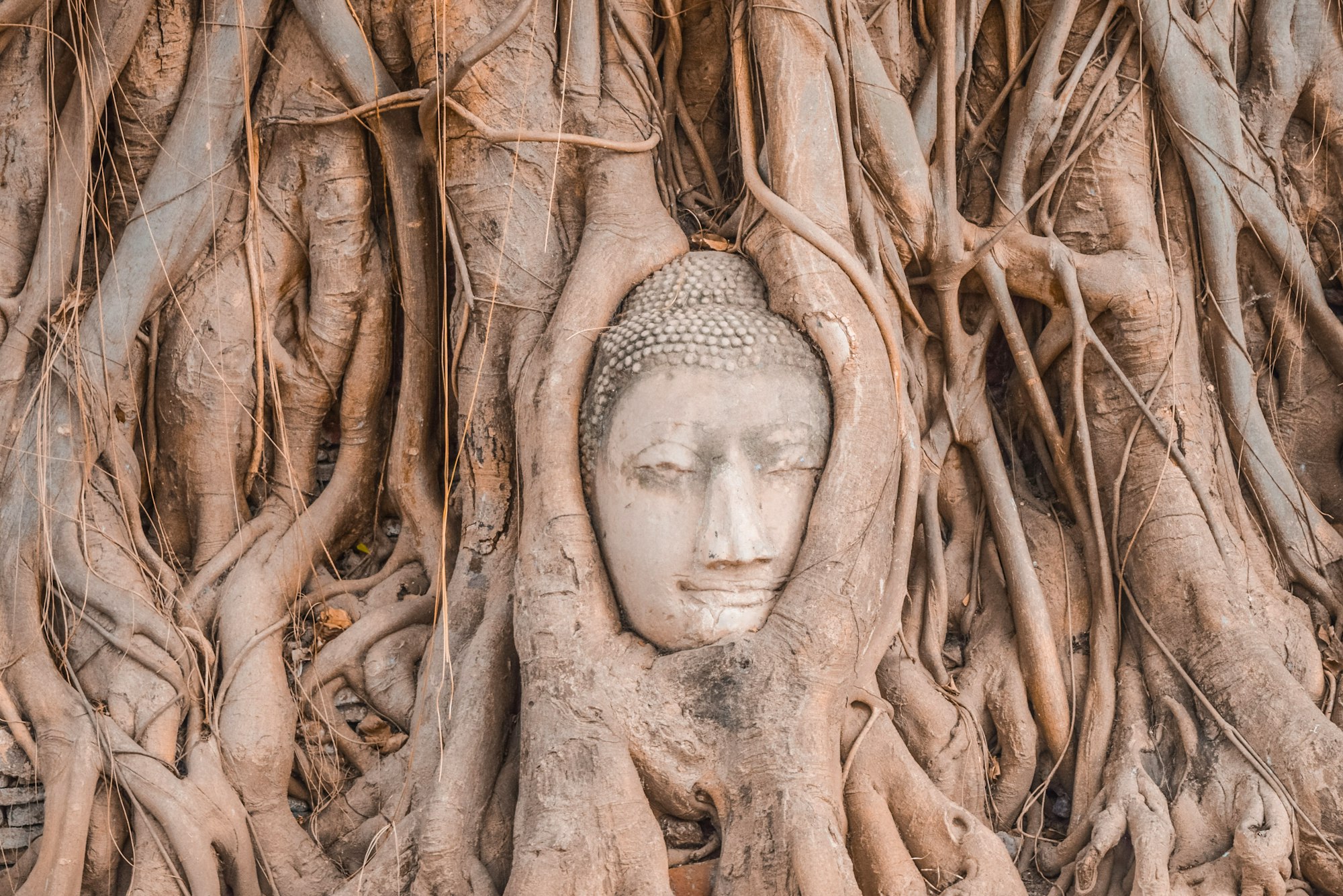The Memory Question

The coffee arrives at precisely the right temperature thanks to the barista who has mastered the art of the unhurried espresso. Outside, Bangkok's July morning unfolds with a kind of languid precision. It helps me understand why people fall in love with this city despite themselves. Tree-lined streets, the gentle hum of scooters navigating around actual pedestrians. Shophouses here seem have found their rhythm somewhere between commerce and community.
"Now days visitors skip Ayutthaya," she mentions. The barista. She wipes down the machine with the methodical care of someone who understands that good coffee requires respect for process. She pauses, considering this. "Too hot in July."
She isn't wrong.
But life has taught me that timing and memory operate on schedules that have nothing to do with efficiency or logic. The Greeks, as it turns out, had already figured this out. They made Memory herself a goddess – Mnemosyne, daughter of Uranus (Heaven) and Gaia (Earth), who understood that remembering was about selection rather than storage.
Rather sophisticated, when you think about it.
She didn't preserve everything; she chose what deserved to survive. Her nine daughters, the muses, inherited this wisdom: keep what serves the story, let the rest dissolve into the kind of forgetting that makes space for new understanding.

And no, I'm not talking about 'passive recording.' We've come to associate memory with our photograph-everything culture. Mnemosyne, on the other hand, was an active force, constantly editing experience into something more useful than mere accuracy.
The word itself comes from the same root as 'mind'. The Greeks understood that remembering was thinking, not just retrieving. Instead of being a filing system, memory was a creative process that transformed raw experience into something worth keeping. The goddess Mnemosyne lay with Zeus for nine consecutive nights to birth the nine muses, and every human art (poetry, history, music, dance, astronomy) was born from Memory's body.
Which is beautiful, no? Creativity didn't come from perfect recall, but from memory's ability to select, combine, and transform experience into something new.
The drive to Ayutthaya takes just over an hour from central Bangkok, depending on traffic and the particular relationship your driver has developed with the city's rhythm. The approach to Ayutthaya reveals itself gradually. Modern Thailand giving way to something that feels more provisional and more willing to accommodate the weight of history. The ancient city sits on an island at the confluence of three rivers, the Chao Phraya, Lopburi, and Pa Sak, a strategic location that once made it one of the wealthiest trading centers in the world. But perhaps distance was the point. Perhaps Mnemosyne was simply waiting for the right moment, when experience could transform into something more than tourism.

Back in Bangkok, settling into the afternoon rhythm of Ekkamai's coffee culture, the memory question takes on a different dimension. The city keeps what works: morning markets that have adapted to modern transportation, canal systems that still move people more efficiently than roads during rush hour, the social architecture of shophouse neighbourhoods that creates community while accommodating commerce. The rest fades, not because it was unimportant, but perhaps because cities, like memory, must be selective to remain functional.



